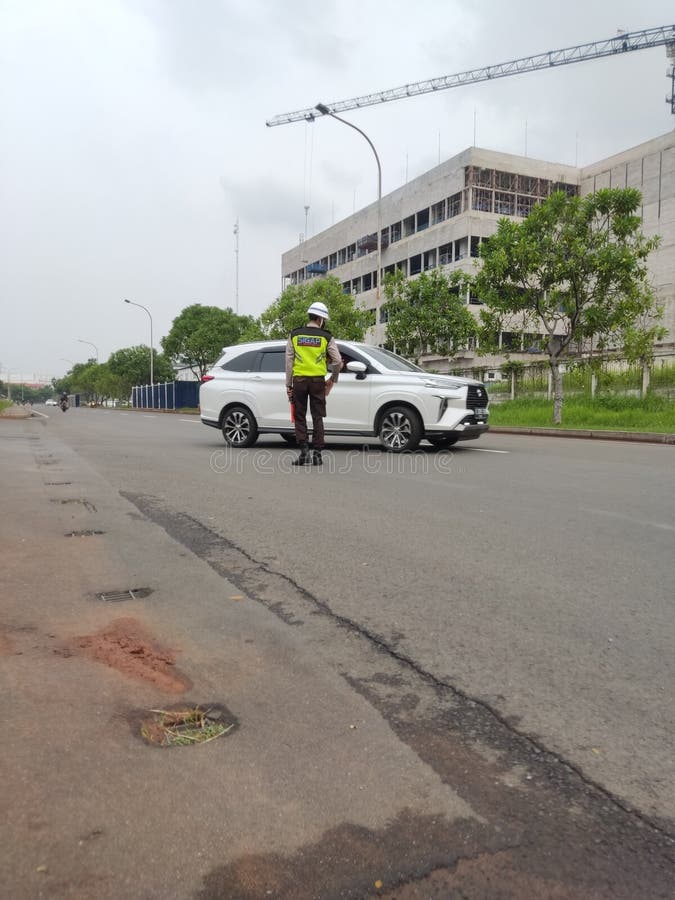Have you ever wondered what it really means to be an officer on duty? Well, buckle up because we're diving deep into the world of these unsung heroes who keep things running smoothly when the chips are down. Whether it's in the military, law enforcement, or corporate environments, the officer on duty plays a critical role that often goes unnoticed until something goes wrong. So, let's break it down and see why they're the backbone of so many operations.
Being an officer on duty is more than just wearing a uniform or sitting at a desk. It's about being prepared for anything, from handling emergencies to making tough decisions under pressure. Think of them as the glue that holds everything together when chaos threatens to break loose. They're the ones you want on your side when the unexpected happens.
Now, let's not kid ourselves—this isn't an easy gig. The officer on duty has to stay sharp, alert, and ready to act at a moment's notice. Whether it's managing a crisis or overseeing routine operations, their job requires a unique blend of skills and dedication. In this article, we'll explore what it takes to be an officer on duty, the challenges they face, and why their role is so crucial in today's fast-paced world.
Read also:Frank Nitti The Shadowy Figure Who Ruled Chicagos Underworld
What Exactly is an Officer on Duty?
Let's start with the basics. An officer on duty (OOD) is essentially the person responsible for overseeing operations during their assigned shift. Their role can vary depending on the organization, but the core responsibilities remain the same: ensuring safety, maintaining order, and responding to emergencies. In the military, for example, the OOD is often in charge of managing troops and coordinating with higher-ups to ensure mission success.
In law enforcement, the officer on duty might be tasked with patrolling areas, responding to calls, and ensuring public safety. Meanwhile, in corporate settings, the role could involve overseeing security protocols or managing IT systems. Regardless of the environment, the officer on duty is the go-to person when things get dicey.
Key Responsibilities of an Officer on Duty
So, what does an average day look like for an officer on duty? Here's a quick rundown of their primary responsibilities:
- Monitoring operations to ensure everything runs smoothly.
- Responding to emergencies and coordinating with other departments or agencies.
- Documenting incidents and maintaining accurate records.
- Communicating with superiors and subordinates to keep everyone informed.
- Implementing safety protocols and enforcing rules and regulations.
It's a lot to handle, but the best officers make it look effortless. They're the calm in the storm, keeping everyone else focused and on track.
The Skills You Need to Be an Officer on Duty
Being an officer on duty isn't for everyone. It requires a specific set of skills that not everyone possesses. Here are some of the key qualities you'll need to succeed in this role:
- Leadership: You need to be able to take charge and make decisions quickly, even in high-pressure situations.
- Communication: Clear and effective communication is crucial for coordinating with team members and other stakeholders.
- Attention to Detail: Missing even the smallest detail can have serious consequences, so staying sharp is a must.
- Problem-Solving: Things don't always go according to plan, so being able to think on your feet is essential.
- Stress Management: The job can be intense, so learning how to manage stress is key to staying effective.
These skills don't just appear overnight. They're developed through training, experience, and a willingness to learn from every situation you encounter.
Read also:Pining For Kim A Deep Dive Into The Phenomenon Thats Got Everyone Talking
The Challenges Faced by Officers on Duty
Let's be real for a second—being an officer on duty isn't all sunshine and rainbows. There are plenty of challenges that come with the territory. For starters, the hours can be long and unpredictable. You might be called in at 3 a.m. to handle an emergency, or you could be stuck dealing with a crisis that lasts for days. It's not exactly a nine-to-five job.
Then there's the pressure of being responsible for so many moving parts. One mistake can have serious consequences, whether it's endangering lives or compromising sensitive operations. Add to that the mental toll of constantly being on high alert, and you've got a recipe for burnout if you're not careful.
Managing Stress and Burnout
So, how do officers on duty manage the stress and avoid burnout? It's all about finding the right balance. Some of the strategies they use include:
- Regular exercise to release tension and boost energy levels.
- Meditation or mindfulness practices to stay centered and focused.
- Taking breaks when possible to recharge and clear their minds.
- Seeking support from colleagues or mental health professionals when needed.
It's important to remember that even the toughest officers need to take care of themselves. After all, you can't pour from an empty cup.
The Importance of Training for Officers on Duty
Training is the backbone of any successful officer on duty. Without the right preparation, even the most talented individuals can struggle in this role. Proper training covers everything from tactical skills to leadership development, ensuring that officers are ready for whatever comes their way.
In military settings, training might involve simulations of combat scenarios or disaster response drills. For law enforcement, it could mean learning how to handle firearms safely or practicing de-escalation techniques. Corporate environments might focus on cybersecurity protocols or crisis management strategies. The bottom line is that continuous learning is essential for staying sharp and effective.
Continuous Learning and Development
Training doesn't stop once you've been hired. Officers on duty are expected to keep up with the latest trends and technologies in their field. This might mean attending seminars, taking online courses, or participating in workshops. The goal is to stay ahead of the curve and be prepared for whatever challenges the future holds.
For example, advancements in AI and automation are changing the way many industries operate. Officers on duty need to understand how these technologies impact their roles and how they can leverage them to improve efficiency and effectiveness. It's a constant process of adaptation and growth.
The Role of Technology in Supporting Officers on Duty
Technology has become an indispensable tool for officers on duty. From communication systems to surveillance cameras, tech innovations have made it easier to monitor operations and respond to threats in real-time. Let's take a look at some of the key technologies that are making a difference:
- Communication Systems: Whether it's radios, smartphones, or satellite phones, staying connected is critical for coordinating efforts.
- Surveillance Technology: Cameras, drones, and sensors help officers keep an eye on their surroundings and identify potential issues before they escalate.
- Data Analytics: Analyzing data from various sources can help predict trends and identify areas of concern, allowing officers to be proactive rather than reactive.
While technology can't replace human intuition and experience, it can certainly enhance the capabilities of officers on duty. The key is knowing how to use these tools effectively and integrating them seamlessly into daily operations.
Challenges of Implementing New Technologies
Of course, adopting new technologies isn't always smooth sailing. There are challenges to consider, such as:
- Cost: Not all organizations have the budget to invest in the latest tech.
- Training: Officers need to be trained on how to use new systems effectively.
- Security: Ensuring that sensitive data is protected from cyber threats is a top priority.
Despite these hurdles, the benefits of embracing technology far outweigh the drawbacks. Officers on duty who stay ahead of the curve are better equipped to handle whatever comes their way.
Real-Life Examples of Officers on Duty in Action
To truly understand the impact of officers on duty, let's look at some real-life examples. In 2017, during Hurricane Harvey, officers in Houston worked tirelessly to rescue stranded residents and coordinate relief efforts. Their quick thinking and dedication saved countless lives and helped bring order to a chaotic situation.
Another example comes from the corporate world, where IT officers on duty played a crucial role in preventing a major data breach at a multinational company. By identifying and addressing the threat early, they avoided a potential disaster that could have cost the company millions in damages.
Lessons Learned from Real-Life Scenarios
These examples highlight the importance of preparation, communication, and adaptability in the role of an officer on duty. They also underscore the need for continuous improvement and learning from past experiences. Every situation is a learning opportunity, and the best officers are those who take the time to reflect and grow from each challenge they face.
Future Trends for Officers on Duty
As the world continues to evolve, so too will the role of the officer on duty. Emerging trends like artificial intelligence, automation, and remote work are reshaping the way operations are managed. Officers on duty will need to adapt to these changes and find new ways to stay effective in their roles.
For example, AI-powered systems could help predict potential threats before they occur, allowing officers to intervene early and prevent incidents. Meanwhile, remote work technologies could enable officers to oversee operations from anywhere in the world, increasing flexibility and efficiency.
Preparing for the Future
To stay ahead of the curve, officers on duty should focus on:
- Staying informed about the latest developments in their field.
- Investing in ongoing education and training.
- Building strong networks with other professionals to share knowledge and best practices.
By embracing change and being open to new ideas, officers on duty can continue to thrive in an ever-changing world.
Conclusion: Why Officers on Duty Matter
In conclusion, the role of an officer on duty is more important than ever in today's complex and fast-paced world. From ensuring safety and security to managing emergencies and coordinating operations, they play a vital role in keeping things running smoothly. While the job can be challenging, it's also incredibly rewarding for those who have the skills and dedication to succeed.
So, the next time you see an officer on duty, take a moment to appreciate the hard work and dedication they bring to their role. And if you're considering a career in this field, remember that it's not just a job—it's a calling. With the right training, mindset, and support, you too can make a difference as an officer on duty.
Now, it's your turn. Do you have what it takes to be an officer on duty? Share your thoughts in the comments below or check out our other articles for more insights into this fascinating field.
Table of Contents
- What Exactly is an Officer on Duty?
- Key Responsibilities of an Officer on Duty
- The Skills You Need to Be an Officer on Duty
- The Challenges Faced by Officers on Duty
- The Importance of Training for Officers on Duty
- The Role of Technology in Supporting Officers on Duty
- Real-Life Examples of Officers on Duty in Action
- Future Trends for Officers on Duty
- Conclusion: Why Officers on Duty Matter


